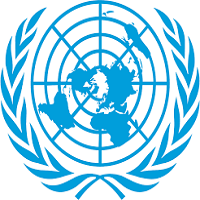Posting Title: International consultant for AfCFTA impact assessment for Comoros
Department/Office: Economic Commission for Africa
Duty Station: KIGALI
Posting Period: 27 February 2023 – 12 March 2023
Job Opening Number: 23-Economic Commission for Africa-202841-Consultant
United Nations Core Values: Integrity, Professionalism, Respect for Diversity
Result of Service
- A detailed conceptualization of the assignment in the form of annotated outline two weeks from contract commencement, including the identification of quantitative analys(es) to be undertaken, as the basis for reaching joint agreement with ECA on the implementation of the consultancy
- An overview of the status of industrial policy in the beneficiary country deliverable 4 weeks after commencement of the contract
- A first draft of the AfCFTA Impact Assessment in accordance with the ToR deliverable 3 months after commencement of the contract
- A comprehensive dataset in Excel deliverable at the end of the asignment
Work LocationHome based with travel
Expected duration3 months
Duties andResponsibilities
Background: The Subregional Office for Eastern Africa (SRO-EA) of the United Nations Economic Commission for Africa, in collaboration with the United Nations Conference on Trade and Development (UNCTAD), is assisting four African least developed countries (LDCs) pre-qualified to graduate from LDC status to increase their chances of achieving graduation with momentum. In this context, SRO-EA is commissioning AfCFTA impact assessment studies for each of the countries. The Consultant will work under the direct supervision of the regional integration and AfCFTA cluster of SRO-EA, under the overall guidance of the Director SRO-EA. LDCs are characterised by limited economic diversity, often manifesting in persistent dependence on the export of commodities. This dependence is exacerbated by low capacities for enhancing the value-added of their products, low technology absorption and utilisation, small production capacities and the concentration of export destinations. Their mobilisation of development finance is also largely dependent upon official development assistance (ODA), with export earnings insufficient to meet their investment needs. The AfCFTA, if its goals are fully realised, represents an opportunity that can potentially be leveraged by the pre-qualified African LDCs to climb out of a structural rut. The elimination of tariffs and non-tariff barriers under the AfCFTA could boost industrialisation and attract cross-border investment in participating countries. Integration in regional value chains could serve as a magnet for investment flows originating from the continent and from outside the continent, with the potential for badly needed injections of fresh capital, technology, and skills for the take-off of dynamic industrialisation. Objective of the Assignment: The AfCFTA impact study will consider the likely implications of AfCFTA implementation, in particular the anticipated changes to the competitiveness of key industries and the potential to establish new industries and exports competences, including expanding existing productive capacities through opportunities for specialisation based on existing industries and capabilities and those that can be realistically rapidly accumulated and deployed in beneficiary countries. In addition, it will evaluate national institutional capacities to harness the AfCFTA for deepening industrialisation and diversification. Accordingly, the study should focus on the potential gains of AfCFTA on industrialisation, investment (domestic and foreign), and on the competitiveness of key industries in the beneficiary country. The study should also estimate the potential implications of the AfCFTA for trade growth, poverty reduction, employment generation and its impact on entrepreneurship. Duties and responsibilities The Consultant will undertake the following analysis : 1) Provide a situation analysis of the status of industrialisation policy in the beneficiary country 2) Evaluate the impact (qualitative and quantitative) of the AfCFTA on the competitiveness of priority industries (in the manufacturing and/or services sectors) identified by the national authorities, including for each identified industry: a. Provide a situation analysis of structure, productive capacities, skill and employment profile disaggregated by gender b. Identify the positive and negative impacts of AfCFTA implementation, including specific analysis on the prospects for survival, upgrading, diversification and nature of shifts in employment (disaggregated by gender) etc. c. Evaluate AfCFTA potential to promote domestic and intra-regional FDI 3) Evaluate the positive and negative impacts on domestic entrepreneurship (if possible, disaggregated by gender) 4) Identify complementary policies (e.g. industrial, entrepreneurship and trade facilitation policies) needed to enhance/unlock the positive impacts of the AfCFTA implementation and evaluate national institutional capacities to implement them, including but not limited to the implementation of AfCFTA protocols
Qualifications/special skillsA minimum of 7 years of professional experience working on international trade, economic policy, industrialisation or related area is required. Proven experience in applying quantitative analytical methods is required. Experience working on development issues in Africa is required.
LanguagesFrench and English are the working languages of the United Nations; for the position advertised, fluency in French is required. Working knowledge of English is an asset.
No FeeTHE UNITED NATIONS DOES NOT CHARGE A FEE AT ANY STAGE OF THE RECRUITMENT PROCESS (APPLICATION, INTERVIEW MEETING, PROCESSING, OR TRAINING). THE UNITED NATIONS DOES NOT CONCERN ITSELF WITH INFORMATION ON APPLICANTS’ BANK ACCOUNTS.
